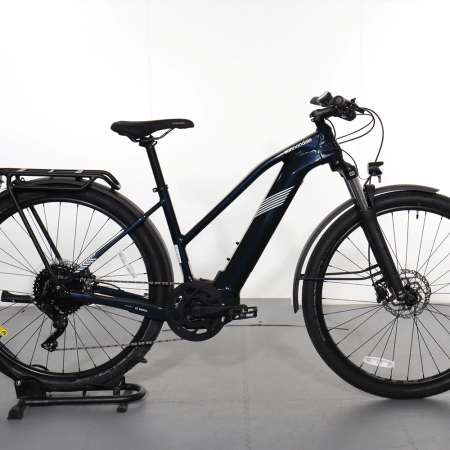As you check your watch in a dark MTA tunnel later, or sit immobile on the 405, know that there is a better way.
Bari, Italy, the country’s ninth-largest city and an important seaport on the country’s southeastern “heel,” is rolling out plans to pay its residents to ride bikes to work.
According to reporting from CityLab, The Atlantic’s web magazine, Bari officials plan on outfitting up to 1,000 local bikes with GPS devices. Participating riders will be able to earn €0.20 every kilometer traveled (that’s about $1.13 a mile, for those metrically-challenged) on trips to and from work, along with €0.04 per kilometer for any other rides around town. To hedge against any local Italians going full Lance once the operation’s up and running, a cap’s been placed at €25 montly earnings per person.
Which means locals can walk away each month with about $30, just for getting themselves to their jobs. And exercising. That’s crazy. I’ll spend $30 in two days of commuting to work. While contributing to a larger machine of nonstop transportation pollution … and probably sitting on my phone for most of the hour in. Meanwhile, the Bari government is also reimbursing any bikes purchased (assuming they were bought from an in-city dealer … smart). Riders can expect €100 bikes purchased secondhand and up to €250 offe-bikes.
Many will point out that it’s easier for a smaller municipality like Bari to attempt this sort of initiative. It’s a city of 320K people (size-wise, think St. Louis), enjoys warm weather year-round and is made up mostly of flat roads. There’s even a long stretch of land along the water well-suited to development. Still, it’s a bit of a risk. The city’s infrastructure isn’t there yet, and nowhere near the quality cyclists would find in, say, bike-haven Copenhagen, where lanes, bike-specific traffic lights and lengthy promenades are no longer a convenience, but a given.
So it’s no surprise Bari plans to slowly introduce Danish sensibilities to its urban design. The city would be wise also to study findings and miscues from previous pay-to-ride programs. France attempted one in 2014 (a private inititiatve with 20 participating companies) aimed at 8,200 employees. By the end, around 220 more people were biking regularly, but many of those individuals had already been carpooling. Because few companies removed cheap or free parking permits already in place, most employees didn’t bother altering their commutes.
For programs like this to be a success, a region needs door-to-door commitment to getting bikes on the road and cars off it. The Netherlands currently has a system that works (shocker, there are 22.5M bikes in the country and only 17.1M people) in the Dutch province of Brabant. Most employees live within 15KM of work, and an app allows them to track their mileage during peak commuting hours. They can earn up to €0.19 per kilometer, and many companies report their employees are fitter and less susceptible to illness. No wonder the Dutch government plans to commit an astonishing $100M to more bike roads and bike parking spaces.
For now, though, we’ll wait and see how the program does in Bari. Then pray for (or simply elect people who will champion) common-sense commuting solutions Stateside.
For more information on the initiative, head here.
h/t CityLab
Main image via Unsplash
Images via Wikimedia Commons
This article was featured in the InsideHook newsletter. Sign up now.























